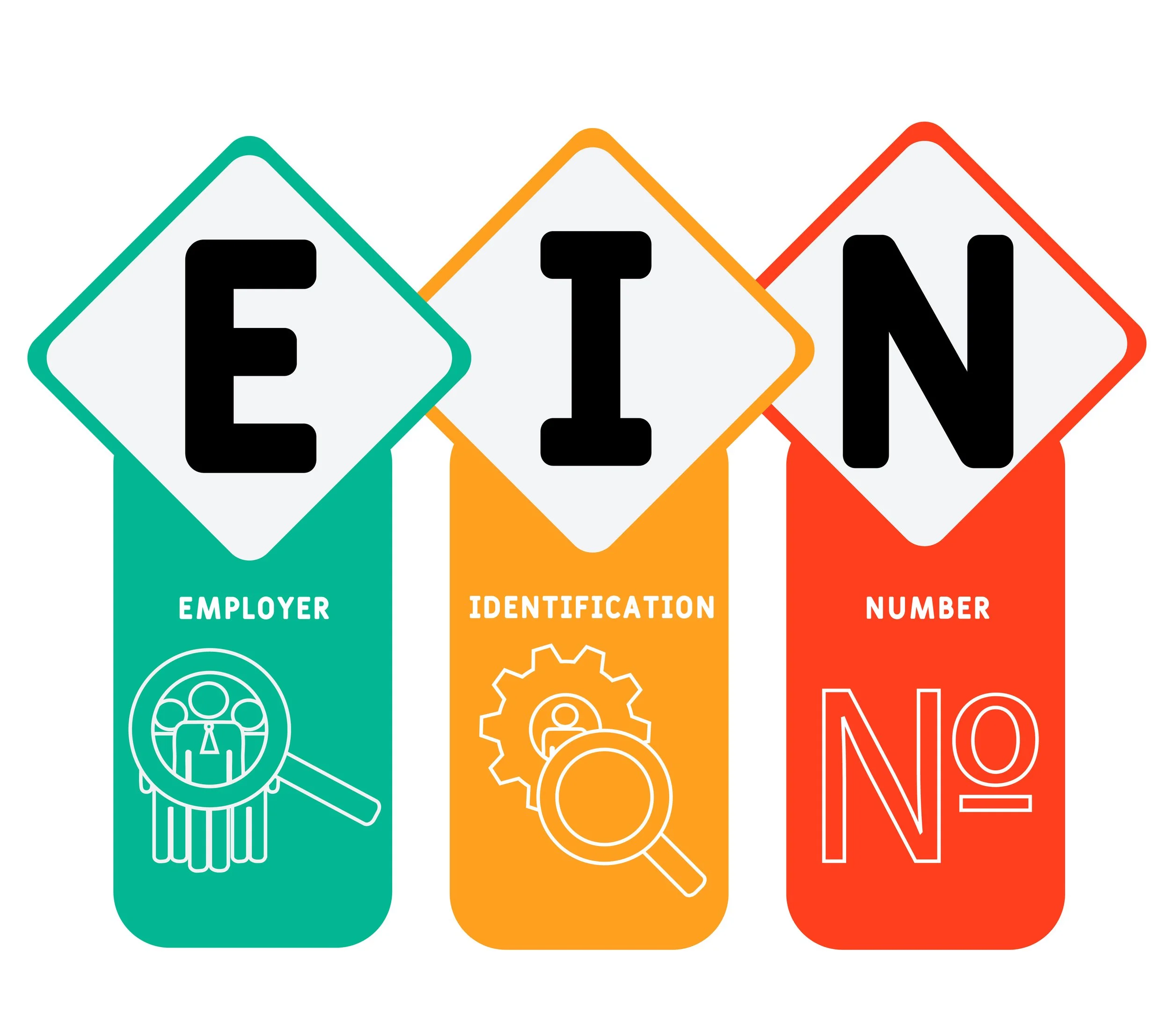An Employer Identification Number (EIN), or Federal Tax Identification Number, is a unique nine-digit number issued by the Internal Revenue Service (IRS) to identify businesses and other entities for tax purposes. It's basically like a Social Security Number (SSN) for businesses. Everyone needs one per business! A startup MUST HAVE to get the Time In Business ( TIB ) clock started to get commercial financing!
You will need a business name for your EIN. Name your business what a future client would search on the internet. Searches exist around what folks need and not what your name is. Think about your Google search and make sure someone else doesn’t have the name you came up with. Crucial for free business leads helping you pay back that future loan!
Here's everything you need to know about an EIN:
Purpose: The IRS uses an EIN to identify businesses for various federal tax purposes. It's required for companies with employees, corporations or partnerships, and Keogh plans (tax-deferred retirement plans for self-employed individuals).
Business Structure: Almost all types of businesses, including sole proprietorships, partnerships, corporations, LLCs (Limited Liability Companies), nonprofits, estates, trusts, and more, may need an EIN if they meet specific criteria. Many do LLCs.
Applying for an EIN: You can apply for an EIN online through the IRS website. The application process is straightforward and usually only takes a few minutes to get you a PDF SS-4 with your EIN. You can also apply by mail or fax by submitting Form SS-4.
Free Service: Obtaining an EIN is a free service the IRS provides. Be cautious of third-party services that charge a fee to help you get an EIN, as you can easily apply for one directly through the IRS.
Unique Identifier: Each EIN is unique to the business or entity it's assigned to. It helps the IRS track business-related tax obligations, filings, and other activities.
Legal Requirement: An EIN is often a legal requirement for tax purposes. If your business meets the criteria outlined by the IRS, you're obligated to obtain an EIN.
Opening Business Bank Accounts: Banks usually require an EIN to open a business bank account. Establishing a separate identity for your business's financial transactions is essential.
Tax Filings: An EIN is used for various federal tax filings, including income taxes, employment taxes, excise taxes, and more. It's used to identify your business when submitting tax returns and paying taxes.
Employment Tax Reporting: If your business has employees, an EIN is necessary for reporting and paying employment taxes, such as Social Security, Medicare, and federal income tax withholding.
Changing Business Structure: If your business structure changes, such as converting from a sole proprietorship to an LLC, you may need to apply for a new EIN, depending on the nature of the change.
Privacy and Identity Theft: Having an EIN can help protect your personal SSN from being used for business-related activities, reducing the risk of identity theft.
State Requirements: While an EIN is a federal identification number, some states require businesses to have a separate state tax identification number. Check with your state's taxing authority for more information.
Business Address: A UPS Store post office box is a perfect substitute for an office address. $250 per year. They offer a full street address if you don’t want to use your home.
In summary, an Employer Identification Number (EIN) is a vital identifier for businesses and entities in the United States. It's used for tax-related purposes, including tax filings, employment taxes, and opening business bank accounts. Obtaining an EIN is a free process offered by the IRS, and it's a legal requirement for businesses that meet the specified criteria. Now that you have your EIN. Make ten years in business, have employees, and you never need to sign or have a Personal Guarantee (PG) for business equipment. We will cover state LLC filings and how that starts time in business towards qualifying for commercial financing.
Commercial Finance Now does not provide tax, legal or accounting advice. This post has been drafted for informational purposes only and is not intended to provide, and should not be relied on for, tax, legal or accounting advice.
